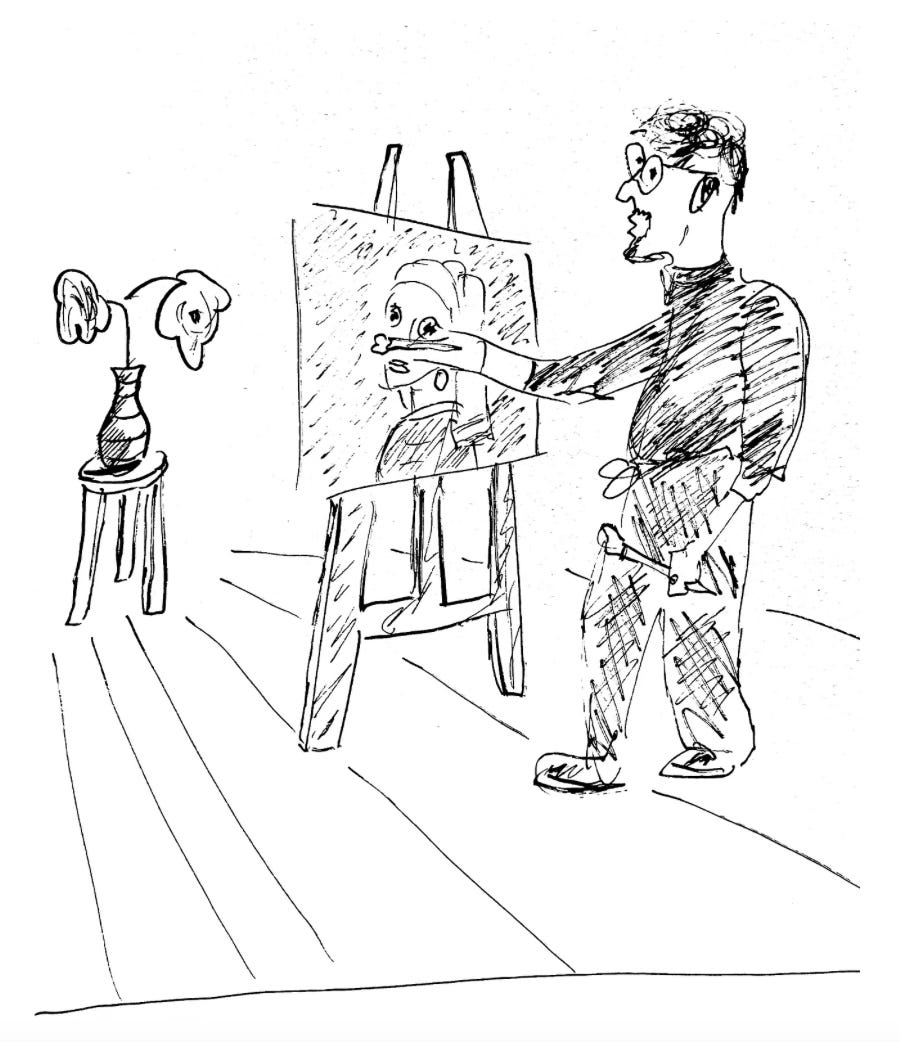
After a couple of decades in the biz, I like to think of myself as knowing a thing or two about teaching folk to speak English, but every now and again it’s useful to interrogate myself to make sure I’m still getting the basics right. To put it in to an artistic metaphor, it’s all very well painting the perfect pearl earring, but if you haven’t got the model’s nose in the right place, your painting will still look like a dog’s dinner.
Anyway, what I’m trying to say is, here are just some basics I remind myself to stick to, you might find them useful too:
Talk less, listen more. Sure, I need to model the target language, but if I find myself talking more than the students, I’m doing something wrong.
Show more, tell less. It’s better to use examples, opposites and gestures than just to translate a word into Japanese1. I want the kids (and adults) engaging their brains, which is the essence of learning, otherwise we might as well all just use Google Translate and go home.
Use humour. I think of comical positions that I can instantly call upon when needed. My students “know” I like sausages, detest natto, I only ever drink cafe latte and constantly misunderstand Japanese. Whether these positions are true or not (true, actually), doesn’t matter, they become props in my comedy routine as English teacher, I can play up my doddery-ness when needed, pretending to not understand anything when students speak Japanese, or getting faux angry when they say they don’t like sausages and believe the propaganda that natto is good for you. Humour and playfulness encourage experimentation and remove the fear of saying something wrong.
Don’t have favourites. Or rather, don’t show that I have favourites (or students I dislike teaching). Give everyone an equal hearing in the class2.
Think of more ways I can show the parents (who pay the fees) how their darlings are improving. Tech can be my friend here, but also my enemy. I like to send vids to parents of their kid giving speeches or doing role plays, but not too much3.
If it comes across that I’m something of a dancing monkey, so be it. The real enemy here is the equating of the passing of exams with getting an education. Getting good results is merely a happy byproduct (hopefully) of being educated. My job as a teacher is to help my students think for themselves (in this case to use English). That’s the basis of education.
The advanced part is getting parents (and headteachers) to understand that.
Patrick
Except when it’s not.
Except when you shouldn’t.
If parents are watching everything it can stifle fun (and learning, see point 3). Too many think that their kid making a mistake is evidence of failure, rather than what it truly is — their kid in the middle of learning.


Did I miss #62?